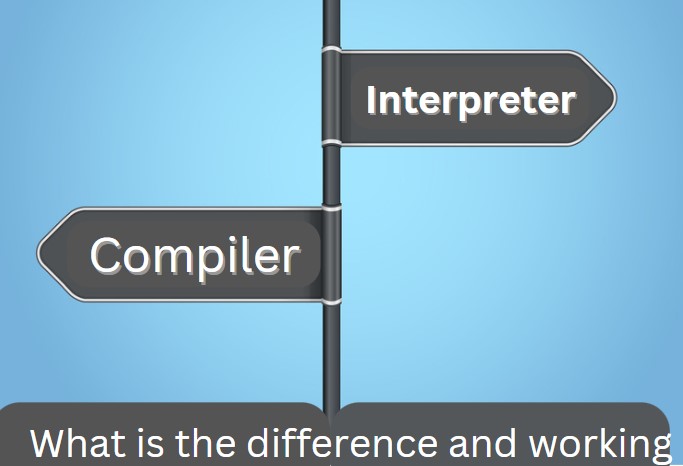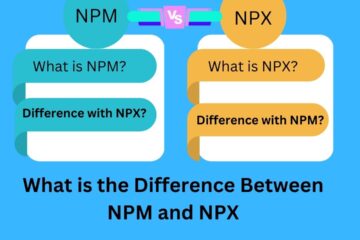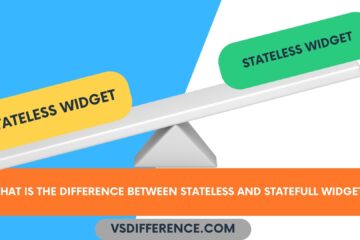If you are into programming then you may come across terms like Compiler and Interpreter. Both are important and plays important role in running a program.
This post gonna be about Interpreter vs Compiler in which we will discuss what is the difference between compiler and interpreter. How Compiler and interpreter are different from each other?
Let’s start with the basic introduction of compiler and Interpreter
Compiler vs Interpreter: Definition
What is Compiler?
A compiler is a program that converts your code written in a high-level programming language into machine code, which can then be executed on a computer. It also finds errors in your program and lets you know.
The process of converting the source code into machine code is called compilation. Compilers are typically used for C, C++, and C#.
The compiler goes through various phases to compile code into machine language. In an interpreter the process is direct.
What is Interpreter?
An interpreter, on the other hand, is a program that directly executes instructions written in a high-level programming language, without the need for an explicit compilation step. It does not translate the program, it just directly executes the program.
The interpreter reads and evaluates each line of code, translating it into machine code as it goes. Languages such as Python, JavaScript, and Ruby are typically executed by interpreters.
Interpreter vs Compiler: Advantages and Disadvantages
Each coin has two sides and the compiler and interpreter have too. Both have their own advantages and disadvantages
What are the Advantages of a Compiler?
There are several advantages of using a compiler:
- Compiled programs generally run faster than interpreted programs because unlike interpreter it does not execute program line by line.
- It required less time
- It is more secure as it is hard to crack by reverse engineering.
- It provides Better error checking, It checks both syntactic and semantic errors both.
- Compilers can handle large projects with a lot of code more efficiently than interpreters.
- Compilers can optimize the code for better performance and smaller executable file size.
- Supported by High-level core languages like Java, c, C++, and much more
What are the disadvantages of a Compiler?
- For larger projects, it takes too much time.
- Requires a separate compilation step, the compiler first compiles the program and then runs it. On the other hand, Interpreter directly runs the program.
- Limited platform support means the separate versions of the program must be compiled for each different platform.
- If a single line of code is changed, the entire program must be recompiled, which can be time-consuming.
- It is Harder to share
- It requires higher Dependencies.
What are the advantages of Interpreter?
- An interpreter executes the program line by line.
- It has smaller size.
- The compiler goes through the extra step of compilation while Interprer directly executes the program.
- It is Platform independence means allowing programs to be written once and run on multiple systems.
- Tnpreter has Interactive development, Programs can be tested and debugged incrementally, which allows for a more interactive development process.
- Programs are easier to share
- Programs can be modified and executed without the need for a full rebuild, making it easier to test and implement changes.
- interpreters often have more forgiving error messages and simpler debugging tools.
Disadvantages of Interpreter?
- It is slower than the Compiler as it executes the code line by line.
- Interpreters do not perform the same level of optimization as compilers, which can result in slower performance and larger memory usage.
- It has less security than compilers.
- Interpreters can only execute code that is supported by the interpreter, while compiled code can be executed on any machine that can run the compiled code.
- An interpreter has limited error-checking capabilities.
- Interpreters may require more resources such as memory and CPU power, than compiled code.
- Dependency management: Interpreters often rely on specific versions of interpreters or libraries to be installed on the target machine, making it harder to distribute, deploy and run the application.
Compiler vs Interpreter: How do they work?
Let’s understand more about the work of compiler and interpreter so you’ll understand more about this topic.
How Compiler work?
The compiler takes the source code and generates intermediate code by going through different phases, which phases called the analysis phase. Analysis phases of the compiler are given below:
- Lexical analysis– In which, the compiler divides source code into parts that behave like the same pattern of code.
- Syntax Analysis– As its name suggests, it checks the syntax of a code.
- Semantic Analysis– It checks the logic code.
- Intermediate code generator– After going through the above phases it finally generates intermediate code.
Then it goes through the optimization phase then it generates the final output code.
How does Interpreter work?
Unlike a Compiler, an interpreter doesn’t go through different phases, it takes the source code and directly gives you output code. It does not generate intermediate code.
Key difference table between Compiler and Interpreter
| Compiler | Interpreter |
| It executes the whole program at once. | It executes the program line by line. |
| Compiled code is secure | The interpreter is less secure |
| It has a higher speed to run code, more than an interpreter | Slower than compiler |
| More efficient than an interpreter | Less efficient |
| Compilers are lager | Interpreters are smaller than the compiler |
| It requires more resources like CPU Power | It required fewer resources than compilers |
| Performs more optimization | Less optimation than Compilers |
| The compiler has more error-checking capabilities, you can find both syntax and semantic errors | The interpreter has less error checking capabilities, only syntax errors can be found |
| Compilers are not flexible | Interpreters are more flexible than compilers |
| Code is harder to share | Easier to share than compilers code |
| It converts the source code into object code | It does not convert the source code into object code |



